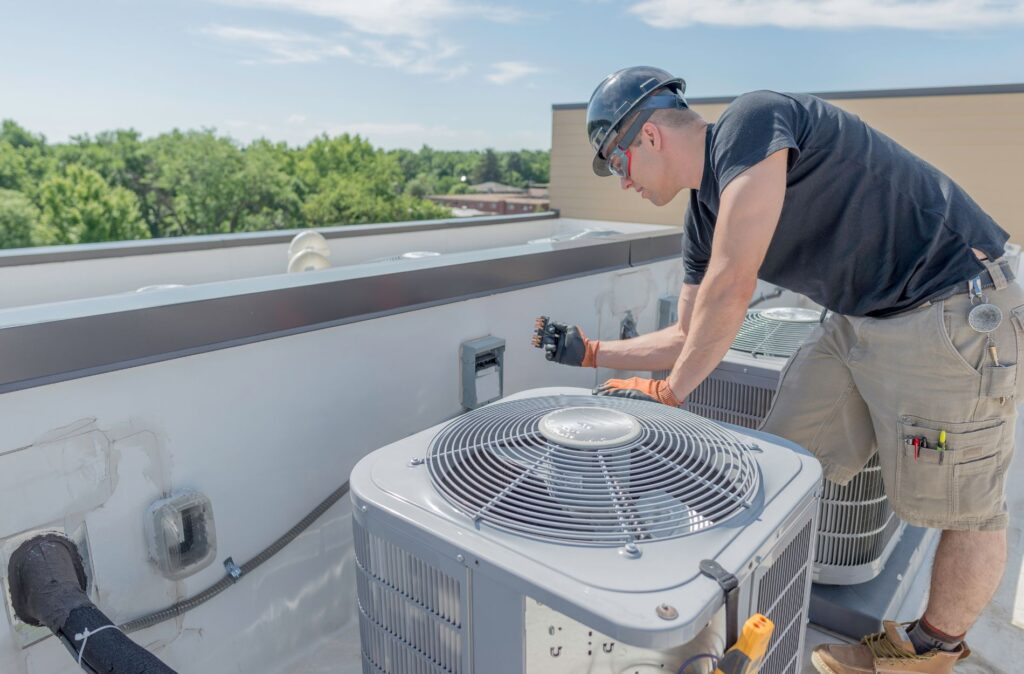Selecting a new HVAC system for your home can be a daunting task, especially with a wide variety of options and features to choose from. Whether you’re building a new home or looking to replace your existing system, it’s essential to consider several factors to make an informed decision and choose the right HVAC system that meets your specific needs, preferences, and budget.
In this comprehensive blog post, we will guide you through the key factors to consider when choosing a new HVAC system, including energy efficiency, system size, and cost, among other essential aspects. We will also discuss different types of HVAC systems and their advantages, to help you determine which option is best suited for your home’s unique requirements. Our aim is to provide you with valuable information that will enable you to make an educated decision and invest in a system that will serve your home with comfort, convenience, and efficiency for years to come.
1. Energy Efficiency
One of the most important factors to consider when choosing a new HVAC system is energy efficiency. An energy-efficient system will not only help reduce your energy bills but will also minimize your home’s carbon footprint, contributing to a greener environment. Look for systems with higher Seasonal Energy Efficiency Ratio (SEER) or Annual Fuel Utilization Efficiency (AFUE) ratings, as these units tend to be more efficient and can result in long-term savings.
2. System Size
Another crucial factor to take into account is the size of the HVAC system. Selecting the right size system for your home is essential to ensure optimal performance, efficiency, and comfort. A system that is too small may struggle to maintain the desired temperature in your home, leading to increased energy consumption and additional wear on the components. Conversely, a system that is too large may cycle on and off too frequently, leading to inconsistent temperatures and higher energy costs. Consult with a professional HVAC technician to help estimate the appropriate size system for your specific needs and circumstances.
3. Type of HVAC System
There are several types of HVAC systems available on the market, each with its own advantages and drawbacks, making it essential to consider which option is the most suitable for your home. Some of the most common types of HVAC systems include:
– Central Air Conditioning: This type of system uses ductwork to distribute cooled air throughout your home. They can be highly efficient and offer consistent temperature control but may require more extensive installation.
– Heat Pumps: Heat pumps both heat and cool your home by transferring heat between the indoors and outdoors. They’re energy-efficient and can provide year-round comfort but may not be the best option in areas with extreme climates.
– Ductless Mini-Splits: These systems consist of an indoor air-handler and an outdoor compressor and do not require ductwork, making them ideal for homes without existing duct systems or for adding supplemental cooling and heating to specific rooms.
– Dual-Fuel Units: These systems combine a heat pump with a gas furnace, offering energy-efficient heating and cooling with the added benefit of supplemental heat from the furnace during colder temperatures.
4. System Cost and Financing Options
The cost of a new HVAC system can be a significant investment, and it’s important to consider not only the upfront cost but also the long-term operating expenses. Look for systems with a higher initial cost but greater operational savings in terms of energy efficiency. Additionally, inquire about financing options and available rebates or incentives that may help offset some of the initial costs.
Additional Factors to Consider
Besides the above-mentioned factors, there are several other considerations to keep in mind when selecting a new HVAC system, including:
1. Indoor Air Quality
A quality HVAC system should also address your home’s indoor air quality needs. Look for systems that incorporate features like air purifiers, humidifiers, or dehumidifiers to enhance the health and comfort of your indoor environment.
2. Maintenance and Warranty
Your new HVAC system should come with a comprehensive warranty to protect your investment in case of unexpected issues. Additionally, ask about the system’s maintenance requirements and schedule, as regular maintenance is key to ensuring the system’s longevity and efficiency.
3. Compatibility with Your Home’s Infrastructure
Ensure that the new HVAC system is compatible with your home’s existing infrastructure, including ductwork, electrical connections, and available space for installation. Consult with a professional technician to evaluate your home’s compatibility with the new system.
Seek Expert Guidance for a Seamless HVAC System Selection Process
Choosing a new HVAC system can be an overwhelming process, but taking the time to research and consider the various factors mentioned in this blog post can help you make a well-informed decision that matches your unique requirements, preferences, and budget. Remember, investing in a quality HVAC system can provide you with long-term energy savings, comfort, and peace of mind, so choose wisely and seek expert guidance when needed.
If you need help selecting the perfect HVAC system for your home, contact NCS’ team of experienced technicians. Our HVAC contractor in MN is here to help you make the right choice and ensure a smooth installation process that meets your comfort and budgetary needs.


